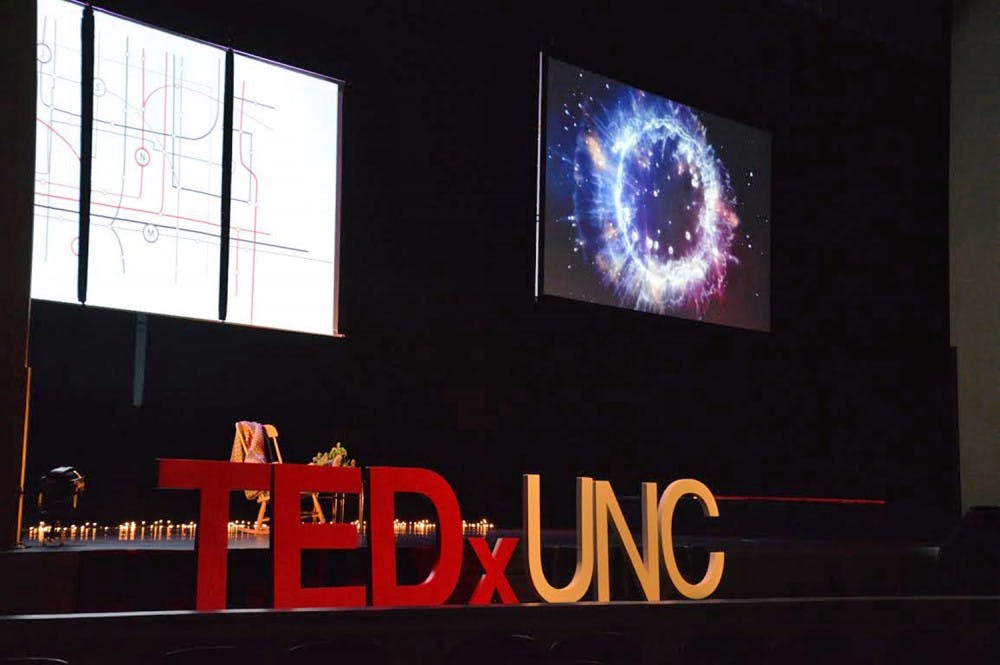“Growing up, I didn’t see myself reflected in the media, and looking back, this only reinforced two things: that you have to be extraordinary to matter, and that I, as an Ethiopian U.S. American, was not extraordinary,” Wondmagegn said.
She said she took a two-month trip to Rome in 2019. During this time, she said that she finally began to understand that her matrix of identities and experiences made her interactions and reporting methods more distinct. She said came to learn that individuals are born with specific understandings that cannot be taught — that is why diversity is incredibly important.
Jackson founded Mobilizing African American Mothers through Empowerment after her first pregnancy and birthing, during which she said she encountered compassionless care, gossiping nurses and interns peeking in during the birth.
“I wanted to be that change to improve better health outcomes," Jackson said. "I wanted to make sure that Black, Indigenous and other people of color knew they had a choice and had agency over their bodies and birthing experience — that there was a village that honored birth as a sacred space.”
MAAME has trained 20 birth workers who are people of color, and served 400 people in birth and postpartum. The program has also provided COVID-19 relief, Jackson said.
However, their services do not stop there. MAAME provides entrepreneurship training and support, substance abuse treatment, mental health support and legal services.
“MAAME exists not just for me, but for all Black women and birthing people of color who were denied access to choice and dignity in health care,” Jackson said.
Heyward said he is an African American painter and collagist exploring his identity and circumstances. His identity crisis began with a shirt, he said.
Heyward was looking for a new shirt for date night with his wife when he stumbled upon an authentic African-inspired shirt at TJ Maxx. He immediately bought it.
“I had never been to Africa, and I began to feel like a fraud," he said. "In fact, I almost ordered one of those damn DNA tests just to see how African I am."
But instead, Heyward said, he turned to art. He expressed his feelings of being caught between worlds in a piece titled “Tug of War.”
“My process usually starts with something personal, and well, being Black in America, it can come from something as simple as looking for a shirt for date night or watching the evening news,” he said. “Some experiences, no one should have to relate to.”
To get the day's news and headlines in your inbox each morning, sign up for our email newsletters.
Samuel discussed invisible labor, work that goes unnoticed and uncompensated. She said that generally, women are not seen as workers. However, Black women are not only expected to work — they are also invisible laborers.
“Compensate Black women with your policies and pay raises,” Samuel said.
Muhammad told the story of hog farms taking over eastern North Carolina, where the communities are mainly Black and Latinx. The smell of hog feces permeates the people’s homes and clings to their doors, devaluing their property and quality of life, she said. She said that the people are afraid of speaking up because the hog farm owners are also the homeowners.
She joined N.C. Environmental Justice Network, a coalition of organizations that works with low-income communities and people of color to pursue climate, environmental, racial and social justice. NCEJN fights against environmental injustice through quarterly meetings and an annual Environmental Justice Summit.
TEDxUNC will be hosting two more salons over the course of this semester. McNeel said the next event will be on March 31, and the theme will be “Us,” featuring student speakers.
university@dailytarheel.com
CORRECTION: A previous version of this article incorrectly spelled Alex Chantilas' name. His name is spelled Chantilas, not Chantilis. The Daily Tar Heel apologizes for this error.



